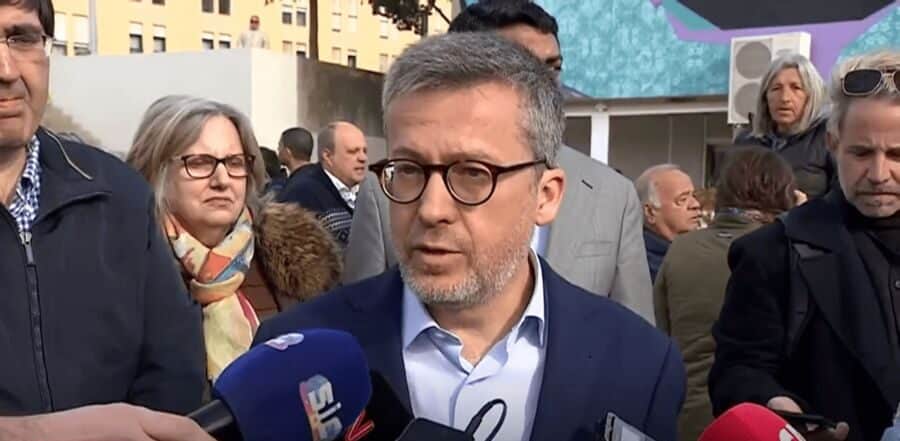Tax began eight years ago – and is charged to Portuguese visitors as well
On top of all the other expenses tourists incur in arriving in this country, booking accommodation, etc., Lisbon City Council wants to increase the value of its tax on visitors to €4 a night (effectively doubling the current €2 charged per person per night).
Mayor Carlos Moedas argues that the new figure “is fair” for the city.
“Increasing the tourist tax is fair for Lisbon residents, it is fair for the city, so it’s a decision I’ve taken, but obviously I want to do it with a great deal of consensus with those who are the most important people in the sector, from hotels to restaurants,” he told reporters today.
The proposal to change the value of the tax is to be discussed tomorrow at a private meeting of the municipal executive. If approved, will be subject to “a 30-day public consultation period” ‘to gather contributions’ before it comes into force.
“I’ll always do everything I can to reduce taxes for Lisbon residents, I’ve done it with the reduction in IRS (personal income tax), which we’re already at 4.5% and, by the end of the mandate, we’ll reach 5% – but at the same time tourists have to contribute more to our city,” said the mayor, who governs without an absolute majority.
Regarding what will be done with the money collected from the tax, Carlos Moedas said that, first, it will be used to “clean up the city”. Part of the money will go towards continuing growth in terms of touristic centres (he gave as an example the Royal Treasure Museum, which was financed by the tourist tax).
According to the proposal signed by deputy mayor, Filipe Anacoreta Correia (CDS-PP), in charge of finance, the “numerous challenges” of tourism currently make it necessary to review the value of the tourist tax for overnight stays, set in 2018, as well as the tourist tax for arrivals by sea, set in 2014, “which is proposed to be increased from €2 to €4 and from €1 to €2, respectively”.
In other words, for arrivals by sea, the increase proposed is again ‘double’ that of the current tax, which only began being charged to cruise ship passengers this year.
The council has also suggested including campsites, boat hotels and similar as entities responsible for collecting the tax.
There are to be two new exemptions to the tax: a declaration of emergency in the context of civil protection and/ or social emergency (ie a point where tourists cannot actually leave the city!) and national and foreign students entering higher education in Lisbon.
Considering tourism to be “a distinctive factor in the city’s competitiveness and an engine of economic and social growth”, the council emphasises the “strong impacts” on public intervention in order to maintain adequate levels of response.
This requires the “definition of regulatory policies, and/or direct public intervention, to guarantee Lisbon’s sustainability in economic, social and environmental terms”, says the proposal.
“The positive effects of tourism consequently imply the reinforcement of urban infrastructures and the functioning of the city, namely the extension of public interventions in terms of infrastructures, mobility, urban cleaning, public space, security and the tourist, cultural and leisure offer”.
For the deputy mayor, this is an endeavour “that should not burden residents, but rather be supported by those who benefit, directly or proportionally, from the goods and services made available by municipal activity”.
The tourist tax in Lisbon was first applied in January 2016 on overnight stays by domestic tourists (including nationals) and foreigners in hotels or local accommodation.
Lusa’s text does not give a ‘time limit’ to the tax (generally these taxes are charged on the basis of a week’s stay, and no more. But this proposal suggests the tax could actually be ‘across the board’, irrespective of how many days a tourist decides to stay in Lisbon). It also does not completely clarify whether it continues to be applicable to national citizens visiting the city, and staying in hotels/ campsites/ AL accommodation, and for whom €4 extra expenses per person per night might prove a dissuasive factor.
Source material: LUSA




















